As a dog owner in Singapore, knowing the common illnesses your pup can get is very crucial to help you recognize whether your dog has signs of getting them! Singapore, which has a humid and hot climate, creates a favorable and ideal environment for some parasites which increases the number of health issues that can affect your pup.
Most of these are not that serious, but if they’re undetected and not treated as early as possible, they may become a serious health issue to your dog. Here are top 5 of the most common illnesses of dogs in Singapore that you should watch out:
1. Allergies

Canine Allergies are caused by harmless substances that an overactive immune system perceives which in turn triggers hypersensitive reactions such as itching and sneezing.
According to SPCA Singapore, the most common type of environmental allergen for dogs are house dust mites.
These allergies can cause your dog to:
- have very poor health
- lack of energy
- mood changes
- persistent chewing
- scratching
If left untreated, skin allergies can cause their skin to become red and inflamed. Skin crusts and scabs may also form so if you notice your dog scratching and chewing their skin a lot, do not hesitate to bring them to the vet right away!
It is also important to know that allergies may differ depending on your dog’s breed. Here are some breeds that are sensitive to issues with food and/or airborne allergies:
- Maltese terrier
- Pekingese
- German Shepherd
- Bull Terriers
- Bichon Frise
- English Cocker Spaniel
- Brussels Griffon
- American Hairless Terrier
- Bohemian Terrier
- Shih Tzu
- Lhasa Apso
- American Pit Bull Terrier
- Wire-Haired Fox Terrier
- Chinese Crested/Powderpuff
- Poodle
- Irish Setter
- English Bulldog
- Pugs
How to prevent these allergies:
It is possible to manage these allergies by medication or medicated shampoos, but many times, such treatments do solve the problem but without finding the root cause of the allergy. Allergies can’t actually be treated but can only be managed so there are no actual cures that will make that allergy disappear. Make sure to consult your trusted vet to find the most effective way to help manage your pet’s allergies.
2. Hypothyroidism

Hypothyroidism is a condition where the thyroid gland, which is one of the most important glands in the body, produces less hormones. When the thyroid gland is inflamed or has shrunk in size, it leads to decreased production of thyroid hormones.
What are the causes:
Hypothyroidism is usually caused by one of two diseases: lymphocytic thyroiditis or idiopathic thyroid gland atrophy.These two causes account for more than 95% of the cases in dogs.
The lymphocytic disease is the most common cause of hypothyroidism and is thought to be an immune-mediated disease which means that the immune system decides that the thyroid is abnormal or foreign and attacks it. It is unclear why this occurs but it is a heritable trait which means genetics plays a role in this condition. In idiopathic thyroid gland atrophy, normal thyroid tissue is replaced by fat tissue.
What are the signs:
- weight gain without an increase in appetite
- lethargy and lack of desire to exercise
- gets cold easily
- dry, dull hair with excessive shedding
- very thin to nearly bald hair coat
- increased dark pigmentation in the skin
- increased susceptibility and occurrence of skin and ear infections
- failure to re-grow hair after clipping or shaving
- high blood cholesterol
- slow heart rate
- thickening of the facial skin
- abnormal function of nerves causing non-painful lameness, dragging of feet, lack of coordination, and a head tilt
- loss of libido and infertility in intact males
- lack of heat periods, infertility, and miscarriage in females
- fat deposits in the corneas of the eyes
- keratoconjunctivitis sicca (KCS) or dry eye due to lack of proper tear production
Cases of hypothyroidism are commonly diagnosed in medium to large-breed dogs, as well as middle-aged dogs.
Some breeds that are more prone to developing this illness include:
- Golden Retriever
- Doberman pinscher
- Irish setter
- Miniature Schnauzer
- Dachshund
- Cocker Spaniel
- Airedale Terrier
How to prevent it:
Hypothyroidism is treatable but not curable. It is treated with oral administration of thyroid replacement hormone. If a vet recommends a drug, this drug must be given for the rest of the dog's life. So keep in mind that consulting your trusted vet is always the best and immediate option you should take for you to know the most effective medication that’s best for your pup!
3. Cancer
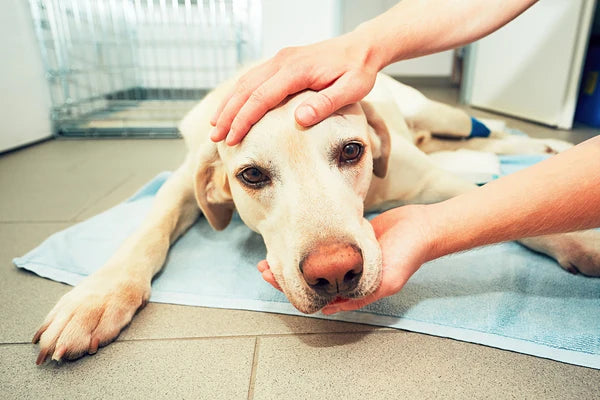
Cancer is a class of diseases in which cells grow uncontrollably, invade surrounding tissue, and may spread to other areas of the body. Dogs can also get various kinds of cancer just like people do. The disease can be localized (confined to one area, like a tumor) or generalized (spread throughout the body). For healthy dogs, cells are continually dying and being replaced. When a dog has cancer, the replacement cells (also called mutant cells) reproduce quickly and form into large groupings. These new cells do not function the same way that healthy cells do and they will eventually replace older healthy tissue and cause death.
What are the causes:
Cancer is a multifactorial disease, which means it is hard to know for sure since it has no known single cause. However, we do know that both hereditary and environmental factors can contribute to the development of cancer in dogs.
What are the signs:Since causes of cancer can be hard to detect, here are signs you can watch out:
- Lumps (which are not always malignant, but should always be examined by a vet)
- Swelling
- Persistent sores
- Bleeding or abnormal discharge from any part of the body opening
- Bad breath
- Listlessness/lethargy
- Rapid, often unexplained weight loss
- Sudden loss of energy
- Black, tarry stools (a symptom of ulcers, which can be caused by mast cell tumors)
- Decreased or loss of appetite
- Difficulty breathing, urinating, or defecating
- Sleeping more than usual
You can also check 5 Expert Guides to Tell Whether Your Pets Have Cancer to learn more!
Though cancer can be diagnosed in dogs of all ages and breeds, it is much more common in older dogs. It is crucial to know the diseases your dog might have according to its breed.These are certain breeds that are more prone to specific cancers:Breeds that most commonly developmast cell tumorsorlymphoma:
- Boxers
- Boston terriers
- Golden Retrievers
Large and giant breeds more likely to suffer frombone cancerthan smaller breeds like:
- Great Danes
- Saint Bernards
How to prevent it:
Treatment options vary and depend on the type and stage of the dog’s cancer. Common treatments include surgery, chemotherapy, radiation, and immunotherapy or a combination of therapies. Success of treatment depends on the type and extent of the cancer and the aggressiveness of the therapy. The earlier you start to detect and treat cancer, the higher the chance of your dog surviving it so make sure to contact your trusted vet immediately if your dog shows any of the signs listed above.
Some cancers can be cured, while others cannot. But please note that if your dog’s cancer is not curable, there are still many things you can do to make your precious pup feel better. Remember that good nutrition and don’t underestimate the power of loving care for it can greatly enhance your dog’s health in ways you might not imagine!
4. Ticks
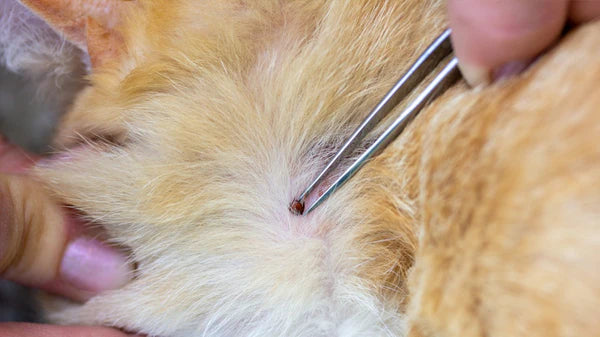
Ticks are more of a problem in Singapore dogs compared to fleas. This is because the high ambient temperature and humidity in Singapore make it unfavorable for fleas to survive. Also, most homes have solid flooring without any carpet nowadays. Ticks are a lot larger and moves slowly than fleas which makes them easier to spot. They belong to the arachnid family like spiders and mites. Ticks are more obvious as they are larger in size and move a lot more slowly. You may see them crawling around in the walls, carpets, or on the floor if you have an infestation.
The most common species found in Singapore is Rhipicephalus Sanguineus, also known as the Brown Dog tick. The males are much smaller than females, about 3mm in length, while the female after feeding can be 10-12mm long.
What are the signs of ticks infestation:
- Itching or infected skin
- Finding them on or around your dog
- Bites, rashes, hives, or blisters
Tick bites are usually not painful or itchy but they do leave red spots or bumps on the affected skin.
How to prevent and remove them from your dogs:Never ever directly pull a tick off as the mouthpiece may be left attached causing prolonged bleeding even after the tick has been removed. The correct method of removing a tick is to use tweezers to grasp it as close to the skin as possible before pulling gently until it detaches itself from the skin. Do not touch ticks with your bare hands as infections may transmit to you.
A year-round parasite preventive program is the best way to protect your pet from external throughout the year. Be sure to consult your vet as soon as you see a tick to know how to properly handle them without making the problem worse. Gather as much knowledge about ticks from your vet as possible!
Environmental control is also important to reduce the presence of both fleas and ticks. This includes:
- regular vacuuming
- washing the bedding in hot water
- cleaning the floors thoroughly once a week
- getting pest control if infestation is severe
If you notice your dog is constantly bringing back fleas/ticks despite doing these preventatives and regular cleaning of your house, then you may need to change the areas where you bring your dog for walks.
You can also check these 7 Tips on How to Prevent Flea and Tick Bites on your Pets to learn more!
5. Heartworm
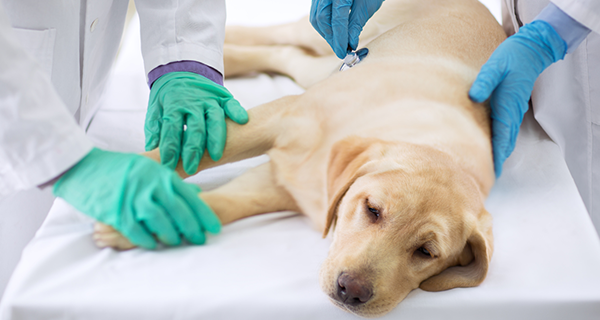
Heartworm is caused by the internal parasite Dirofilaria immitis that is contracted through mosquitos that are carrying immature worms called larvae. These parasites are long thin worms that live in the right side of the heart and the pulmonary arteries, the blood vessels that carry blood from the right side of the heart to the lungs. Once they enter the dog, they will multiply, grow, and divide quickly. Heartworm tends to affect puppies more than adult dogs.
What are the signs:
- coughing
- rapid fatigue with exercise
- reluctance to exercise
- collapsing
If heartworm becomes severe, dog’s signs become severe and developcongestive heart failurewhich may show these following signs:
- lose weight
- poor body condition
- breathe rapidly or with difficulty
- develop a build-up of fluid in the abdomen
How to prevent it:All puppies and dogs should be checked for heartworms and vaccinated against them. Puppies should begin their vaccination series at 6-8 weeks of age and these vaccines should be boostered every 3-4 weeks until at least 16 weeks of age when adult immunity takes over. Heartworm prevention year-round and blood testing for heartworm disease is also recommended for every two years. If you do not want to give preventative in the winter months, heartworm testing can be done annually instead.
Fortunately, Heartworm is less prevalent in Singapore now since extensive mosquito-breeding prevention measures are being done to minimize human exposure to dengue fever and malaria. But you should still do preventions yourselves to avoid your dog from contracting this illness. Remember that prevention is better than treatment especially for heartworm where severe cases may occur.
Conclusion

Finding out that your precious pup has an illness can be very scary and confusing so it’s important to keep these illnesses in mind.
Veterinarians might have different views on the best way to treat the disease so it’s always a good idea to seek out a second opinion and carefully review your options. Working with your veterinarian can help ensure your dog’s health. You should take an active approach to the health and well-being of your dogs. Being familiar with common dog diseases will make it possible for you, as a dog owner, to protect your pup and seek immediate veterinary attention when symptoms of these illnesses appear.
Always consider bringing your dog to the vet for vaccinations as soon as you adopt to protect your pets from these common illnesses. While these diseases are common and most are not serious, they have the potential to become serious if they are not treated properly and as early as symptoms appear. If you have any doubts about your dog’s health, call and talk to your vet about your concerns as soon as possible! It’s always better to be safe than to regret anything in the end.
Here are Top 9 Best Home Remedies for Pets, Basic Pet Care Necessities You May Not Know!, and 7 Questions Every Pet Owner Should Ask Their Veterinarian that can be helpful while you're still arranging your dog's pet consultation. Feel free to check them out!
Share this with your fellow pet owner friends who might need this information right now! Feel free to leave a comment down below about your experiences to help other pet owners, we would also love to read them!
Sign up to our newsletter down below & follow us on Instagram @sgsmartpaw to stay up to date with our weekly blog articles!
References:
- https://www.petsmagazine.com.sg/a/pet-guide/top-dog/771/common-dog-diseases
- https://www.petmovers.com.sg/health.html
- https://www.aspca.org/pet-care/dog-care/common-dog-diseases
- https://easydna.sg/dna-tests/dog-allergy-test/
- https://vcahospitals.com/know-your-pet/hypothyroidism-in-dogs
- https://vetpal.co/fleas-ticks/
- https://www.universityparkvethospital.com/canine-vaccinations-and-heartworm-disease.pml#:~:text=Puppies%20should%20begin%20their%20vaccination,when%20adult%20immunity%20takes%20over.
- https://animalinfirmary.com.sg/dogs/heartworm-dogs/

Rose Hazel San Diego
Hazel loves pets & she has owned cats, dogs, & even hedgehogs! She also fosters cats & dogs in need around her area. With her social media & copywriting background, she gladly shares her knowledge of pets through these articles!
Most Recent Articles
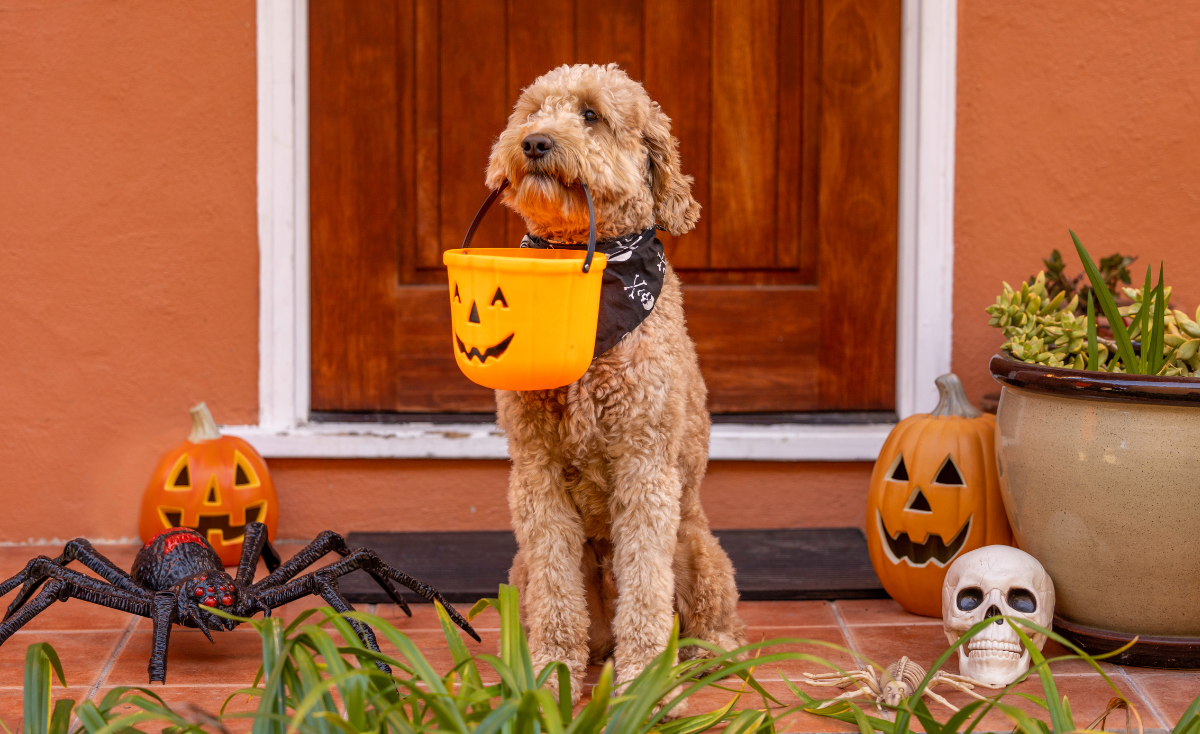
5 Pet-Friendly Halloween Events in Singapore to Celebrate with Your Furry Friends
Halloween isn’t just for humans anymore — it’s going paws up in Singapore! From spooky pet cruises and café pawties to open-air markets and costume contests, this year’s Halloween lineup is packed ...

5 Ways to Protect Your Pet from Singapore’s Humidity This Rainy Season
Singapore’s rainy season is here — and while we’re enjoying the cool, cozy weather, our pets are quietly battling the sticky side of humidity. From itchy skin and smelly fur to ear infections and h...

Cat Litter in Singapore: Types, Pros & Cons Explained
Choosing cat litter isn’t one-size-fits-all. This Singapore-focused guide breaks down clumping & non-clumping clay, silica crystals, tofu, wood pellets, and paper—how they work, their real-worl...












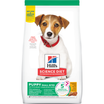











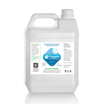


























Leave a comment
All comments are moderated before being published.
This site is protected by hCaptcha and the hCaptcha Privacy Policy and Terms of Service apply.